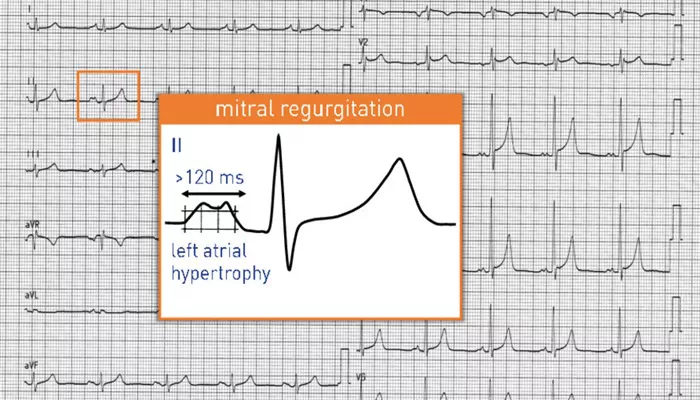Mitral regurgitation (MR) is a condition where the mitral valve does not close properly, allowing blood to flow backward into the left atrium of the heart. This condition can range from mild to severe, and its implications for life expectancy vary significantly based on the severity and management of the disease. This article focuses on mild mitral regurgitation, discussing its impact on life expectancy, management options, and overall prognosis.
Understanding Mild Mitral Regurgitation
Mild mitral regurgitation often goes unnoticed, as many individuals may not exhibit symptoms. The condition can result from various factors, including age-related changes in the heart, congenital defects, or degenerative diseases affecting the valve. In mild cases, the heart typically compensates well, maintaining normal function without significant symptoms.
Symptoms And Diagnosis
Patients with mild MR may experience few or no symptoms. When symptoms do occur, they can include:
- Fatigue
- Shortness of breath during exertion
- Palpitations
Diagnosis is primarily through echocardiography, which allows for visualization of the mitral valve’s function and assessment of the degree of regurgitation. Regular monitoring is essential to evaluate any progression of the condition.
Life Expectancy with Mild Mitral Regurgitation
The prognosis for individuals with mild mitral regurgitation is generally favorable. Studies indicate that patients with mild MR often have a life expectancy comparable to that of the general population. Here are some key points regarding life expectancy:
Long-Term Survival: Research suggests that around 80% of patients with mild symptoms live for at least 10 years after diagnosis. This statistic reflects a robust survival rate, highlighting that many
individuals with mild MR do not experience significant health declines.
Impact of Treatment: While many patients with mild MR do not require surgical intervention, those who undergo timely treatment—such as valve repair—often see their life expectancy restored to that of age-matched healthy individuals. A study showed that patients undergoing mitral valve repair had survival rates similar to those in the general population across various age groups.
SEE ALSO: How Long A Person Can Live After Angioplasty?
Age Factor: The age at which a patient is diagnosed plays a crucial role in determining life expectancy. Younger patients generally have better outcomes compared to older adults. For instance, individuals aged 40 to 89 who underwent surgery for severe MR had similar life expectancies as their healthy peers.
Factors Influencing Life Expectancy
Several factors influence how long someone can live with mild mitral regurgitation:
Severity of Regurgitation: While this article focuses on mild MR, it is essential to note that more severe cases can lead to complications such as heart failure or arrhythmias.
Comorbid Conditions: The presence of other health issues—such as hypertension, diabetes, or coronary artery disease—can significantly impact overall health and longevity.
Lifestyle Choices: Adopting a heart-healthy lifestyle can improve outcomes for individuals with MR. This includes regular exercise, a balanced diet, and avoiding smoking.
Regular Monitoring: Continuous follow-up with a cardiologist ensures that any changes in the condition are promptly addressed.
Management Strategies for Mild Mitral Regurgitation
Management of mild mitral regurgitation typically involves regular monitoring rather than immediate surgical intervention. Key strategies include:
Routine Echocardiograms: Regular imaging studies help track changes in the severity of regurgitation and assess heart function over time.
Medications: While medications are not always necessary for mild cases, those experiencing symptoms may benefit from diuretics or beta-blockers to manage blood pressure and reduce strain on the heart.
Surgical Options: In cases where MR progresses or becomes symptomatic, surgical intervention such as mitral valve repair or replacement may be indicated. Studies show that timely surgery in these cases can restore life expectancy to normal levels.
Conclusion
In conclusion, individuals diagnosed with mild mitral regurgitation can expect a favorable prognosis and a life expectancy comparable to that of the general population. With appropriate monitoring and lifestyle management, many patients lead normal lives without significant limitations. For those requiring intervention due to progression or symptomatic presentation, surgical options provide excellent outcomes and restore expected longevity.
The key takeaway is that while mild mitral regurgitation warrants attention and monitoring, it does not necessarily equate to reduced life expectancy when managed appropriately. Regular consultations with healthcare providers ensure optimal health outcomes and quality of life for affected individuals.
Related topics:
- What Are The Symptoms of A Partially Blocked Heart Artery
- What Causes Heart Bypass Surgery?
- How Long to Cardiac Stents Last?

